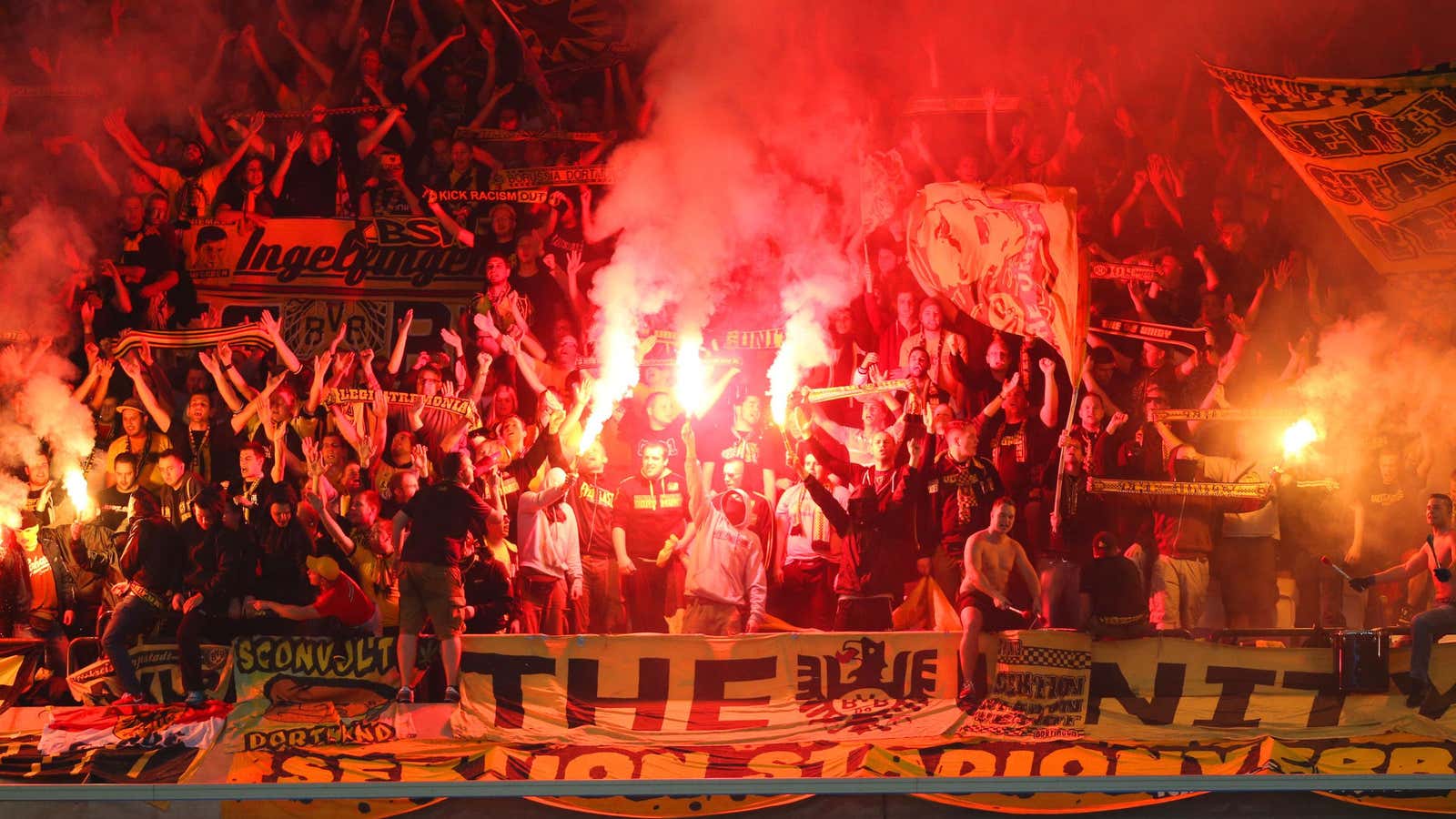English fans love their soccer. But with prices to watch the beautiful game so high in the country that invented it, the BBC reports more than 1,000 fans from England are traveling all the way to Dortmund—in Germany—to watch matches. One Chelsea fan, Jack, travels all the way from London, a car journey of around 7 hours. What gives?
The cheapest match-day ticket at Chelsea is £50 ($80). The cheapest Borussia Dortmund match, as well as those at other huge German clubs such as Bayern Munich, is £13. ”Prices are too high in England,” Jack told the BBC. ”But here, everything is cheap. It’s a better experience for the fan and the atmosphere is incredible.” Another British fan at a Dortmund game said that the total cost of tickets, hotels, and transport from the UK added up to £65 for the whole trip. “When you think it cost me £51 to see the Arsenal game last season, you can see the benefits,” he said.
Arsenal has the most expensive match-day tickets in England, with prices of up to £97. You can pay £1,000 to watch Arsenal—who have never won the European Cup—over the course of a season, whereas you could see the four-time winning team Barcelona, for example, for a tenth of that. Despite record amounts of TV money coming into the game, ticket prices for the Premier League are going up, not down. The reason tickets are so expensive is partly that there is an insatiable demand for English soccer as the game has become more global. And so far, fans will pay the prices: The Premier League says 95% of its tickets are sold. That’s why many clubs are planning bigger stadiums to pull in even more match-day revenue from their fans.
The Bundesliga, meanwhile, is the only major soccer league in Europe where its clubs make a collective profit. It prides itself on keeping ticket prices low. Clubs such as Dortmund deliberately limit the number of lucrative season tickets to allow more fans access to the games. Dortmund’s managing director, Carsten Cramer, told the BBC that the club’s caterers wanted the club to increase the price of beer and Puma wanted them to raise the price of the replica kit. The club said no to both. Dortmund does not allow people in the corporate boxes to buy drinks during the game. It plans to offer free Wi-Fi—but turn it off during the match to prevent fans from losing touch with the action on the pitch.
“We are a football club,” Cramer said. “If the football doesn’t run properly, the rest of the business would not work. The business is part of a train, but not the engine.”
And so far, the approach is paying off. In 2012, Borussia Dortmund made the final of the Champion’s League, European soccer’s elite competition. They were allocated around 24,000 seats in the stadium; Dortmund’s fans requested 502,000—all from a city with a population of 581,000.
